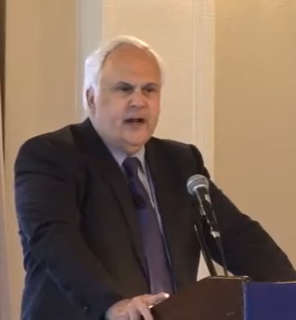A Quote by Mary Robinson
We need to be prepared to have multi-stakeholder, well-managed partnerships. That can be very effective. We saw this happen at international level with the UN Convention on Landmines, for example, where some governments didn't want to go forward, but enough governments did and with them many NGOs. At international level we need to see this as the 21st century way of doing things.
Related Quotes
If we want to make progress in key areas now, we have to build a multi-stakeholder process, harnessing the appropriate energies. So not only the politicians but also business, the wider civil society, and the trade union movement all have a contribution to make, whether it is at national or at international level.
The 21st century looks different. It's been very disruptive. It has created a lot of insecurity. We have to adjust to that, because the 21st century has real promise. Now, the higher-paying jobs of this new century are fantastic. The problem is, you have to have some level of higher education, maybe not a four-year degree, but some level of higher education, to get those jobs.
The international human rights framework is a vital component and engine for promoting global values. Governments have signed up to this international legal framework and we should hold them accountable, in all circumstances from environmental or labour standards, to trade talks, arms control and security issues as well as other international legal codes.
This is the one international institution we have in which governments get together to work collectively for a common purpose. International crises, by definition, require international solutions. Peacekeeping is a response to conflict, is a response to situations in which often it is not the business of any one particular country to get into. It seems to me, therefore, that the world will for the foreseeable future need peacekeeping.
Governments have been ceding power to big multinational corporations in the market. We see the manifest in a variety of ways. Where governments are giving up power to big international institutions like the World Trade Organization or NAFTA, which are disabling governments' ability to protect the rights of their own people.
It remains the task of governments to implement the fundamental human rights standards which should influence all aspects of globalisation, including even trade talks, and to be answerable for this in a democratic way. The structure is international, but the accountability is national and I would like to see that accountability being more penetrating at regional and local level, especially in federal systems.































